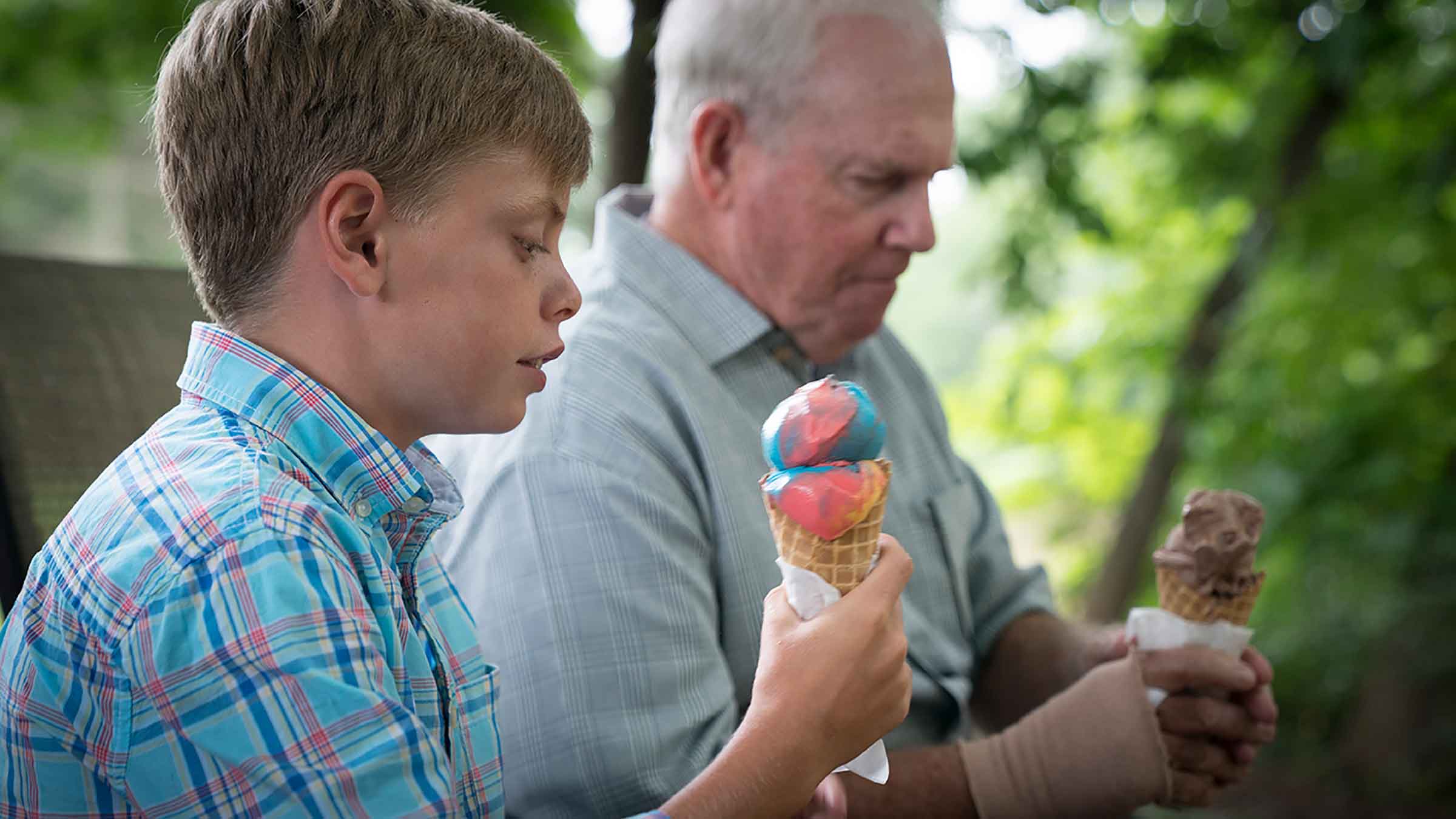
How to Deal With Sundowners: Advice From Caregivers
Sundowning is a symptom of Alzheimer’s disease, and commonly appears as restlessness and agitation that worsens as the sun goes down. Because of this, both patients and caregivers often suffer from sleepless nights and low functioning days.
When caring for a loved one with Sundowners Syndrome, you may feel at a loss for what to do or say. Know there are methods for alleviating some of the stress both of you may feel by helping your loved one cope with their symptoms. We asked our community to share their advice on coping with the symptoms of Sundowners. Read on for their advice and inspiration:
1. Accept What You Cannot Change
“Number one, remember you will not stop Sundowning! So to go with the flow is best! My mom would walk constantly around and around the house. Make sure there are no throw rugs to trip them up. Give them space. If they say they are walking to a specific place, after a little time, use your phone to pretend to call that person or place and tell them that the place is closed and they can try again tomorrow.
During Sundowning is when ‘compassionate fibbing’ comes in very handy. They usually talk about their past as if it is today, wanting to talk to or go visit loved ones that have passed away years ago. Go along with them but tell them they are gone tonight or on vacation.”
Tereasa C.
2. Agree, Then Refocus
“Be calm. Always agree, never argue or correct. And then, refocus on something else (music, or a game or craft). Refocus. It works.”
Kathy H.
“Always agree and then change the subject.”
Mary Ann H.
3. Give Your Loved One Something To Do
“Another really helpful thing is to have a small basket of socks or hand towels ready to sort. My mom would wake up in the middle of the night and wonder where everyone was. Having this handy for busy work would keep her satisfied for a bit and then she would get sleepy again. Vs. walking around in the dark.”
Shawn W.
4. Create a Calming Environment
“Play their favorite calming videos or music, diffuse essential oils, or any other thing that is calming. The main thing is to not try to stop the behavior unless it is going to hurt them or someone else. Sometimes a car ride to get ice cream or a root beer or just going for a drive will be beneficial!”
Tereasa C.
“Music, well-lit house, Christmas lights, and companionship.”
LaDonna G.
“Dim lights, soft music or soft outdoor sounds like water and frogs. Someone by their side is always helpful.”
Shawn W.
5. Do Something Fun Together
“Be calm and use your imagination. My mom and I went on some wonderful trips together but never left the house.”
Becki S.
6. Offer Reassurance and Love
Above all, your love is what matters. Oftentimes your loved one may simply need a hand to hold and to be told everything is going to be okay. No matter how tired you may feel, know that with your reassurance you have the power to offer your loved one a bit of comfort.
“Sundowning is a heartbreaking thing to watch but my best advice is to simply continue to stay calm and love them through it. Don’t be confrontational, just keep them safe.”
Teresa F.
“Lots of love & patience.”
David G.
7. Take a Break
The strain from caring for your loved one can add up. It may feel nearly impossible, but it is so important that you carve out time to take care of yourself.
One way to get that time is by rallying your community for support. There’s no need to downplay what you’re going through or worry about being a burden. Ask your neighbors, coworkers, friends and family for the help you need. In most cases, they’ll be happy and willing to help out where needed!
To make this process easier, consider starting a CaringBridge site for your loved one. Each free site comes with a Planner feature to help you coordinate and share caring tasks. It’s a simple, effective way to get others involved with providing care.
For more advice on how to make space for yourself, check out these tips to heal from caregiver burnout.
Don’t go through your health journey alone.
You can stay connected to friends and family, plan and coordinate meals, and experience love from any distance.
All of this is ready for you when you start your personal CaringBridge site, which is completely free of charge, ad-free, private and secure. Don’t spend another minute alone!
What’s Your Advice?
If you have cared for someone suffering from Sundowners syndrome, what strategies have helped you both cope? Please feel free to share your stories and ideas in the comments below.